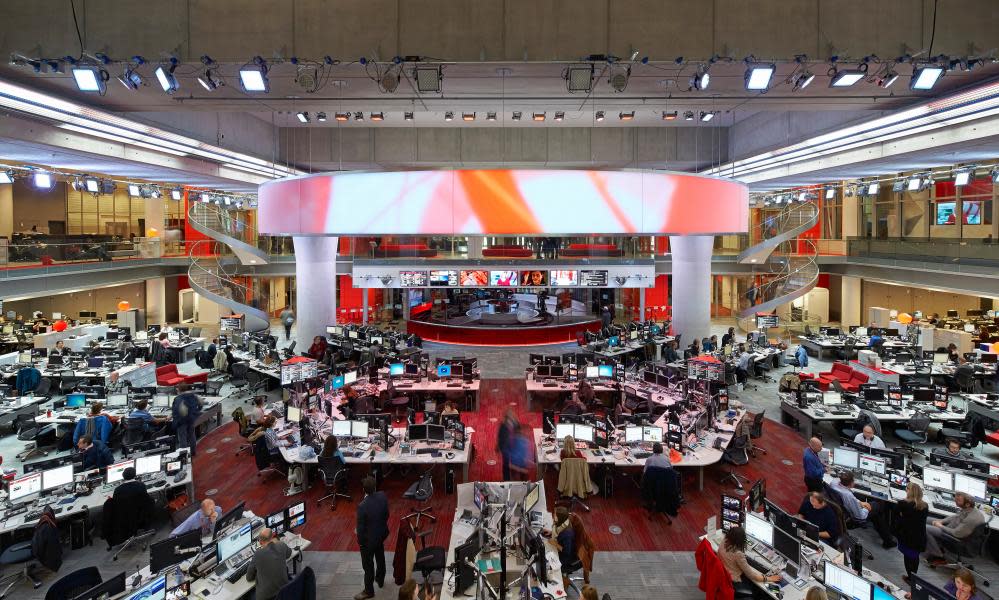BBC increasingly trying to ride two horses at once

Fran Unsworth knows she has a problem – and it goes far beyond the 450 job losses that the BBC’s head of news announced today. Not only is the government looking for ways to reduce the the broadcaster’s funding even further in coming years, but younger viewers are increasingly tuning out of the BBC altogether.
And if the BBC doesn’t find ways to reach these younger viewers, Unsworth asked the corporation’s news staff on today, “How can we continue to take money off them?”
The existential question now facing BBC News is whether it can transfer from being a news operation that is still focussed on producing individual television and radio programmes to a nimbler organisation with centralised teams reporting stories which reach all age groups in all formats.
All of this has to be achieved operating on an ever-reducing budget, while maintaining journalistic standards, at a time when every aspect of the BBC’s output is under more scrutiny than ever before. That’s in addition to the intense scrutiny from politicians and other media outlets who are ready to jump on any changes to services – not to mention reluctant staff who fear increased workloads.
This is a challenge for any organisation, especially one founded around the principle that it should provide an all-encompassing universal service to the entire country in an era where the media is increasingly fragmented. While some specific cuts to certain shows – such as the outright closure of the Victoria Derbyshire programme and the end of Newsnight’s acclaimed films desk – have been announced, there will be hundreds more journalists who will find out in the summer that they are out of a job as staff or placed into centralised teams.
The problem is the BBC is increasingly trying to ride two horses at once. The corporation’s broadcast channels still, despite their declining audiences, reach tens of millions of people a week. Many of them are quite happy with the material they are watching, but these programmes cost money the BBC wants to divert into online operations – and cutting resources could irritate the existing fans of the television and radio output.
There have been attempts to bring in new listeners to traditional broadcast stations such as 5 Live by refreshing the lineup with new presenters. But this runs the risk of alienating existing audiences without attracting new under-35s who are more likely to consume material online.
Staff who have seen multiple rounds of redundancies and reorganisations in recent BBC history appeared resigned to their fates today, while being intensely sceptical of the idea that one crew of journalists could produce content for wildly different programmes such as BBC Breakfast, 5 Live, and Newsnight. Many pointed out the five BBC News managers announcing the cuts in the broadcaster’s central London headquarters had combined salaries approaching a million pounds a year, and appear to be remaining in their positions.
The cuts announced today have also kept headline programme closures to a minimum, making it easier for BBC bosses to push through a substantial reduction in the headcount. Show closures cause outrage among politicians and audiences when they learn that their favourite programme is going off air – as seen by the reaction to canning Victoria Derbyshire’s programme. But saving the brand name while removing much of a show’s resources is a much easier sell.
Unsworth is aware that the BBC will come under pressure over the job cuts but she told staff that the BBC now has no choice but to redirect resources into online journalism if it wants to ensure it has a future audience.
“Our friends and enemies in the press, well mainly enemies, would like us to be in the broadcasting model only. The problem is the under-35 audience are getting all their news from social media and the internet. They’re not watching bulletins,” she said, making clear that she expected pushback.
“If the press don’t like it and the Sun don’t like it – well I’m sorry, that’s just tough.”

 Yahoo News
Yahoo News 
